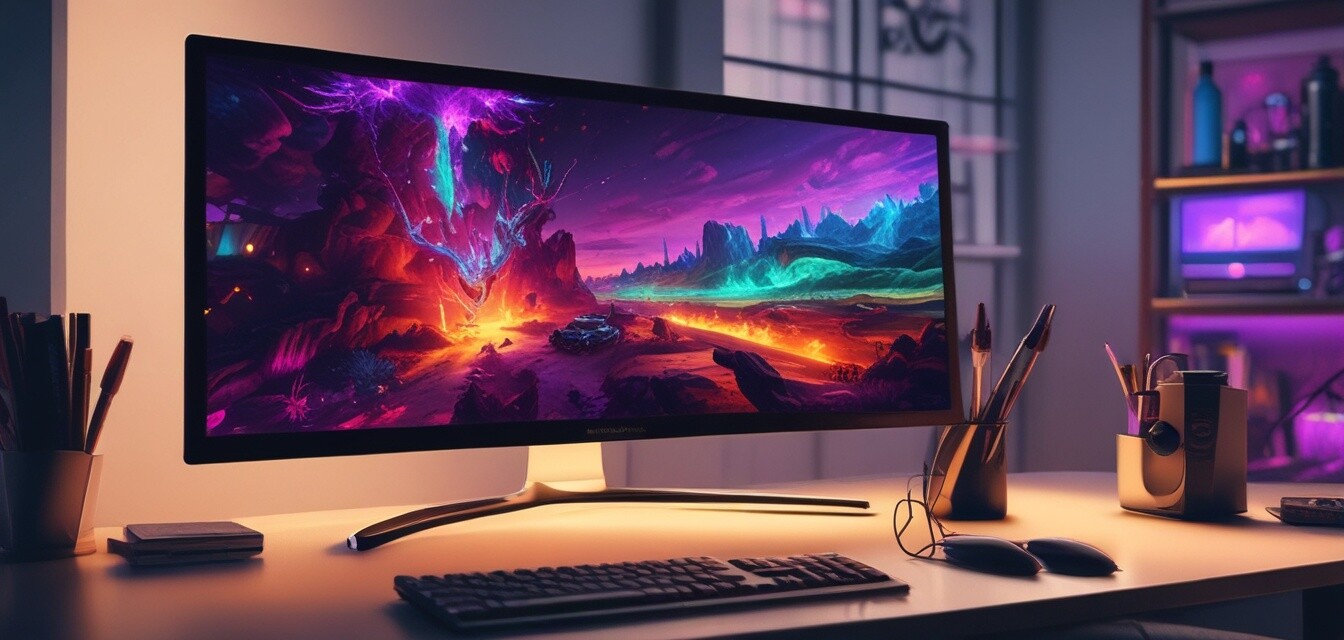
The Best OLED Monitors for Creative Work and Gaming
Key Takeaways
- OLED monitors offer superior color accuracy and contrast, making them ideal for creative tasks and gaming.
- Features such as fast response times and low input lag enhance the gaming experience.
- Consider features like resolution, screen size, and adaptive sync technologies when choosing a monitor.
- Investing in a high-quality OLED monitor can significantly improve both your gaming and creative workflows.
In the world of gaming and creative work, choosing the right monitor can make all the difference. OLED technology is known for its ability to deliver stunning visuals and deep blacks, making it a popular choice among gamers and designers alike. This article dives into the best OLED monitors that excel in both realms, allowing you to create stunning designs and enjoy immersive gaming sessions without compromise.
Why Choose OLED Monitors?
OLED (Organic Light Emitting Diode) monitors are celebrated for their remarkable color reproduction and contrast. Unlike traditional LCDs which use backlighting, OLED pixels emit their light, resulting in vastly improved color accuracy. Here are some key benefits of OLED monitors:
- Color Accuracy: Ideal for designers who need precision in their work.
- High Contrast Ratios: OLEDs provide true blacks, which enhance the overall image quality.
- Fast Response Times: Perfect for fast-paced gaming, ensuring smooth visuals.
- Wide Viewing Angles: Colors remain consistent even from different perspectives.
Features to Consider
When selecting the best OLED monitor for both gaming and creative work, consider the following features:
| Feature | Description |
|---|---|
| Resolution | Higher resolutions (like 4K) offer greater detail, crucial for creative tasks. |
| Refresh Rate | A higher refresh rate (120Hz or higher) enhances gaming smoothness. |
| Color Gamut | Look for monitors with high color gamut coverage (sRGB, Adobe RGB) for accurate color representation. |
| Adaptive Sync Technology | Features like G-Sync or FreeSync reduce screen tearing during gaming. |
| Connectivity Options | Ensure compatibility with your devices, looking out for HDMI, DisplayPort, and USB-C options. |
Top OLED Monitors Compared
We’ve created a comparison of some of the best OLED monitors available in the market to help you make an informed choice. Below is a comparison table showcasing critical specifications.
| Model | Resolution | Refresh Rate | Color Gamut | Adaptive Sync |
|---|---|---|---|---|
| Model A | 3840 x 2160 | 120Hz | 100% sRGB | G-Sync |
| Model B | 2560 x 1440 | 144Hz | 95% DCI-P3 | FreeSync |
| Model C | 3840 x 2160 | 60Hz | 99% Adobe RGB | None |
| Model D | 1920 x 1080 | 240Hz | 100% sRGB | G-Sync & FreeSync |
Pros and Cons of OLED Monitors
Pros
- Exceptional color accuracy and vibrant visuals.
- Fast response times suitable for high-speed gaming.
- Great contrast ratios providing captivating viewing experiences.
- Wide viewing angles ensuring consistent image quality from various perspectives.
Cons
- Potential risk of burn-in with static images.
- Generally higher price point compared to LED options.
- Limited brightness levels compared to some high-end LED monitors.
Final Thoughts
In conclusion, investing in an OLED monitor can significantly elevate both your gaming and creative work. With stunning visuals, superior color accuracy, and fast response times, OLEDs are designed to meet the demands of today's creators and gamers. Whether you're designing graphics or diving into vibrant gaming worlds, choosing the right OLED monitor is crucial for an optimal experience.
For more insights on other types of gaming monitors, check our 4K OLED Gaming Monitors or explore our Buying Guides for helpful tips.